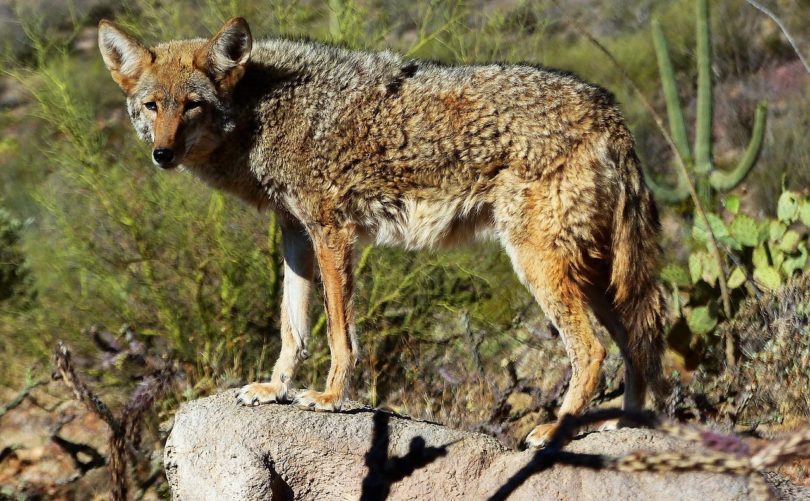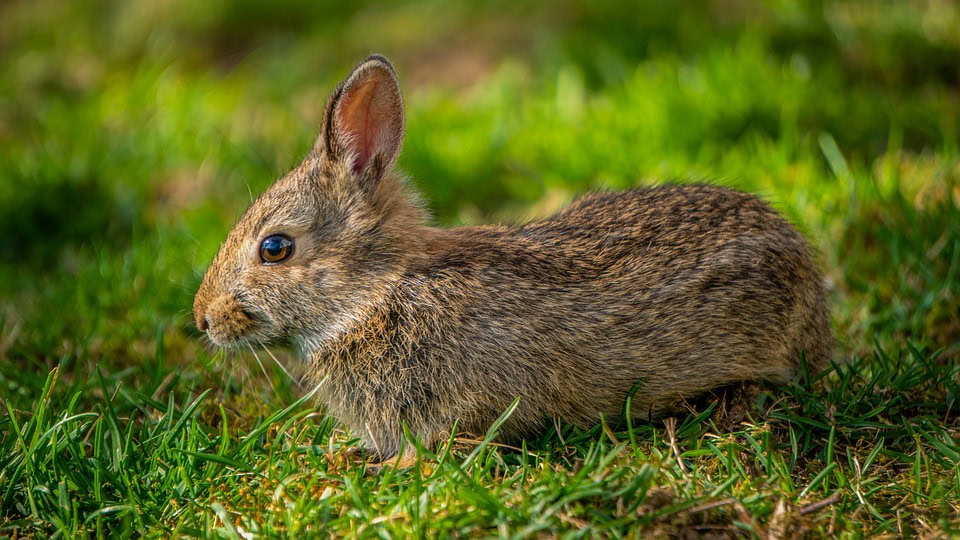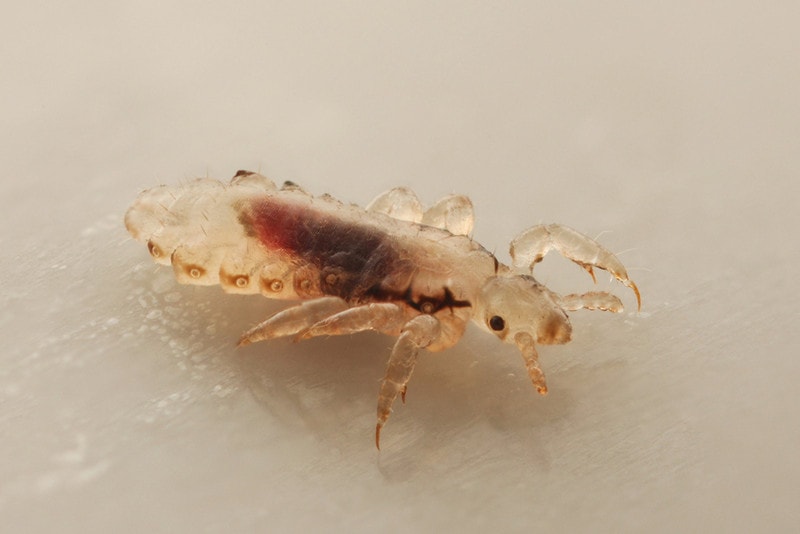VET APPROVED

The information is current and up-to-date in accordance with the latest veterinarian research.
Learn more »Click to Skip Ahead
According to the American Pet Products Association, about 58 million U.S. households have dogs among their pets.1 It’s easy to understand why. After all, they don’t call canines our best friends for nothing. There are 201 breeds recognized by the American Kennel Club (AKC).2 While some are far removed from their coyote ancestors, some are decidedly closer, such as the German Shepherd, and look like wolves.
It’s not a stretch that some people would prefer dogs that resemble their wild counterparts, like the coyote. Some may think having a coyote as a pet would be exciting. However, it’s probably more of a romantic notion than a practical, or even legal, one. Legality aside, having a coyote as a pet is an ill-advised idea since they’re not domesticated, can be aggressive, and aren’t adapted to human environments.

The Legal Question
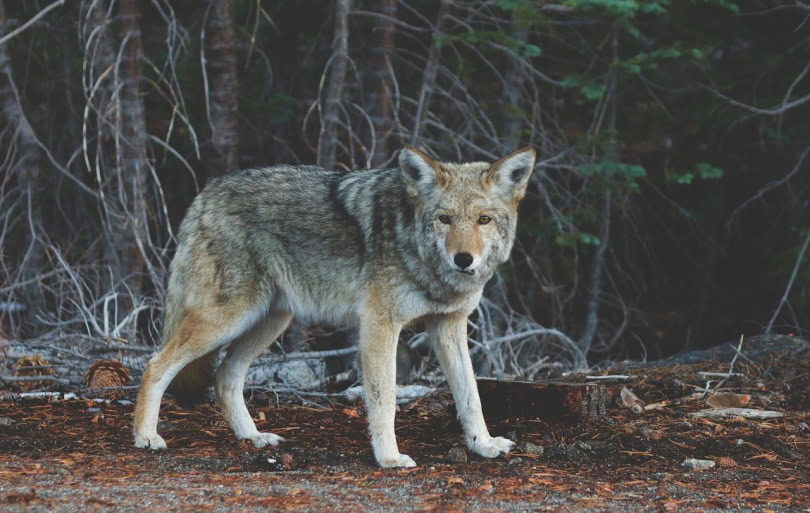
The first question to consider is the legal one. You’ll find that there are usually three levels of legality, depending on the state. They are:
- Yes, you can own one.
- Yes, but you need a special permit.
- No, you can’t own a coyote.
The answer rests on several factors. One is whether the coyote is a native animal in the area. Then, the question becomes one of whether it’s a pest or not. The other factor is whether the animal type is a game species. Many states ban taking native wildlife from the wild for various reasons. Sometimes, it’s a health issue with animals that may transmit diseases to humans.
- Related Read: Unusual Pets that are Legal to Own in the US
Pest Control
Sometimes, a jurisdiction wants to keep a pest species under control. Coyotes are highly adaptable, which has helped them expand their range. Currently, they are widely distributed throughout all of North America. They used to live just in the West, but they have since adapted to city and suburban life.
Livestock Predation
You’ll likely see that coyotes are prohibited where there is a history of livestock predation. Many states where there is ranching ban them because they are considered pests, with a risk that a pet that escapes would add to the problem.
- Related Read: Do Coyotes Attack And Eat Cats?
More Concerns
In some states, you can legally own a coyote. It may permit them for scientific purposes, such as research institutes or other wildlife facilities. Nature centers may include a coyote among their list of resident animals for educational tours.
Many jurisdictions consider coyotes dangerous or exotic animals. That’s often where the legal question rests. Of course, governments define this term differently, usually based on the local experience with human-coyote conflicts. Sometimes, it depends on the population density of a state. You’ll likely find that you can have coyotes and other animals in places where it’s sparsely populated.
The other deciding factor is whether or not the coyote is managed as a game animal. Some areas allow hunting or trapping of coyotes for their pelts. Some states may allow other game hunters to take a coyote because it’s a nuisance. That designation may make owning one as a pet illegal. Therefore, your first calls are to your state DNR and city hall.

Domestication Issue
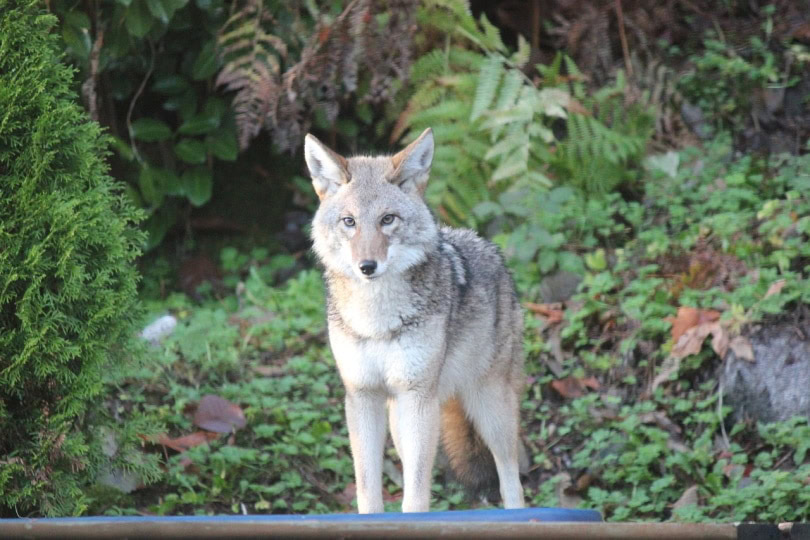
The other question about coyotes is whether you can domesticate them. It’s helpful to put it in context with our pet dogs. Dogs and wolves share a common ancestor. Dogs branched off to become a separate species about 27,000–40,000 years ago. Archaeological evidence suggests that humans domesticated dogs about 23,000 years ago.
A lot has happened since that time. Dogs have evolved to adapt well to living with humans, and their diet has changed. Humans have selectively bred canines for many traits, including hunting, herding, and companionship. So, we’re talking about thousands of years together. That’s not the case with coyotes, which are essentially wild animals.
Domestication isn’t simply a matter of raising a coyote as a puppy. Instinct will kick in when a coyote sees a rabbit or the family cat. It’ll likely present problems with other dogs in the household or neighborhood. Coyotes are still coyotes and will probably act aggressively toward any other canine they encounter. Remember that these instincts still exist with domesticated dogs, too.
Safety Spin
We must also consider the safety of owning a coyote. Coyotes have been known to attack humans. Many of these attacks are brazen, broad-daylight conflicts. Part of the reason is habitat encroachment. As more people move into areas where coyotes live, the chances of an encounter are greater. Since they are so well-adapted to people, they are less likely to back off and retreat.
That means having a pet coyote may bring wild canines to your property. Even if your companion won’t hurt you, that doesn’t mean another animal won’t. The other issue to consider is other dogs in your neighborhood. Coyotes have attacked domesticated pets in breeds of all sizes, although smaller pups are at a greater risk. You’ll probably find that your neighbors won’t welcome your coyote.
We also have to think about practical matters, such as veterinary care. You may find it difficult to locate a vet who will treat your pet for basic care, including vaccinations. After all, coyotes can carry rabies. However, just because they are canines doesn’t mean the same treatments work with coyotes. Most likely, you’d have to find a vet who specializes in exotic animals.
We’re not even scratching the surface about other problems, such as housebreaking, neutering, and training. Coyotes are intelligent animals, but that doesn’t mean you’ll be able to teach one to sit and stay, even with treats as motivators.
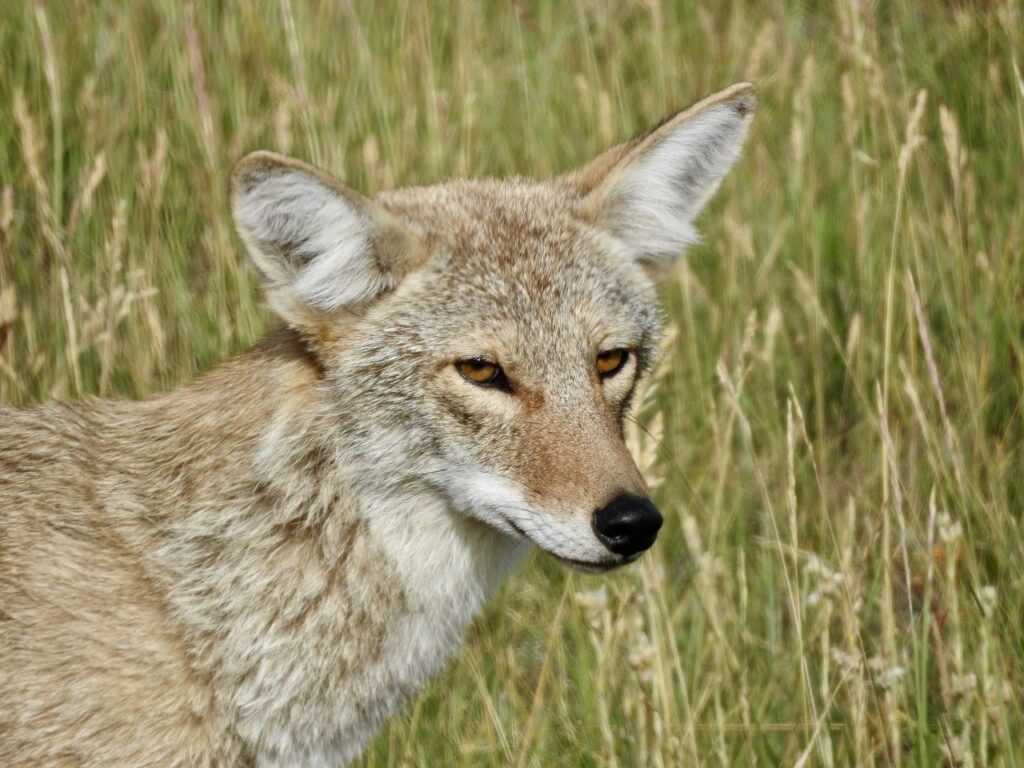

Final Thoughts
While we can understand the curiosity of owning a coyote as a pet, there are too many reasons to adopt a dog instead. The legality of owning one is the most significant, depending on where you live. It’s worth mentioning again that the places where it’s most likely to be allowed are sparsely populated areas that minimize the risk of a conflict.
The other consideration is safety. Coyotes aren’t domesticated, which can make their behavior unpredictable and dangerous. Needless to say, coyotes are not an ideal choice for the first-time pet owner. We can admire the coyote for its intelligence and adaptability. It’s a survivor. However, it’s better to keep them in the wild and listen to their howling at night as they roam the plains than adopt one.
- https://www.nationalgeographic.com/animals/article/coyotes-expansion-north-america-wildlife-nation
- https://sdlegislature.gov/Rules/Administrative/2971
- https://www.cell.com/current-biology/fulltext/S0960-9822(15)00432-7
- https://www.livescience.com/8405-dogs-dogs.html
- https://digitalcommons.usu.edu/hwi/vol12/iss2/9/
- https://www.nrahlf.org/articles/2018/6/3/urban-coyote-attacks-increasing-on-humans-and-deer/
- https://urbancoyoteresearch.com/coyote-info/conflicts-research-perspective
Featured Image Credit: rauschenberger, Pixabay
